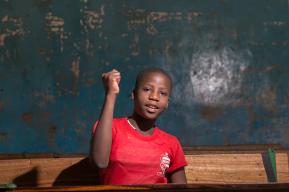News
UNESCO and Huawei Technologies embark on a transformative journey to reinvigorate STEM education
Press Release: On International Women’s Day (8 March), UNESCO and Huawei announced a collaborative endeavour to reinvigorate STEM education for future generations in Europe, notably in South-East Europe and the Mediterranean, with a particular emphasis on empowering girls and women in STEM. The project is generously funded by Huawei Technologies and implemented by UNESCO through its Regional Bureau for Science and Culture in Europe.
The project titled “Revitalizing STEM education to equip next generations with STEM competency” will run for 15 months. It aims at reinvigorating STEM education for future generations and responding to pressing societal needs and global challenges, through the collaborative development of innovative educational solutions, the enhancement of institutional and professional capacities, and the dissemination of knowledge and best practices.
Representatives from UNESCO Regional Bureau and Huawei Technologies, joined by representatives from the Science, Education and Communication and Information sectors, were present both in person, in Venice (Italy), and online. The supervisory board for the project, established during the meeting and composed of representatives from UNESCO and Huawei, will oversee the implementation of the project.
Today, we stand at the intersection of innovation and education, and it is our duty to ensure that the next generation is given the tools to navigate this dynamic landscape. This initiative holds the key to unlocking a world of possibilities, where innovation and knowledge converge to shape the minds of future leaders, thinkers and creators.
As one of the key components of the project, UNESCO will support innovative actions on the ground, including STEM Research Activities and STEM Educational Activities developed and implemented in a 6-month timeframe by the selected project teams in Europe, with a special focus on the region of South-East Europe and the Mediterranean. The relevant stakeholders will include researchers, educators and learners, educational entities, NGOs, and private sector partners in the areas of STEM Education in the region.
Building on the results that will be generated by the selected projects, a regional clearinghouse will be established to serve as a knowledge hub. The project will leverage on the Regional STEM Alliance and the Roadmap to 2030 launched in November 2023.
TECH4ALL digital inclusion initiative focus on the women, K12 students and teachers, and other vulnerable groups. We hope to use ICT to let them access to the high-quality educational resources and enable a more inclusive and sustainable digital world.
Gender disparities persist in STEM fields and women and girls remain underrepresented in STEM. The project places particular emphasis on empowering girls and women in STEM education, with a view to advancing their roles in digital societies.
On the occasion of the International Women’s Day, UNESCO and Huawei delivered key advocacy messages on promoting the STEM education and gender equality.
- Access to quality STEM education is a fundamental right that should be available to all, irrespective of gender.
- It is important to inspire and empower girls to envision themselves as future leaders in STEM. Representation in STEM matters, and by showcasing successful women as role models in these fields, we pave the way for others to follow.
- Diversity fuels innovation. By encouraging the active participation of women in STEM, we enrich the talent pool, ensuring a broader range of perspectives that will drive groundbreaking discoveries and innovative solutions.
- We recognise the importance of creating supportive and enabling environments where girls and women feel encouraged to pursue STEM education and careers. A culture of inclusivity is a vital component of this ecosystem.
Link
- Gender Equality https://www.unesco.org/en/gender-equality







